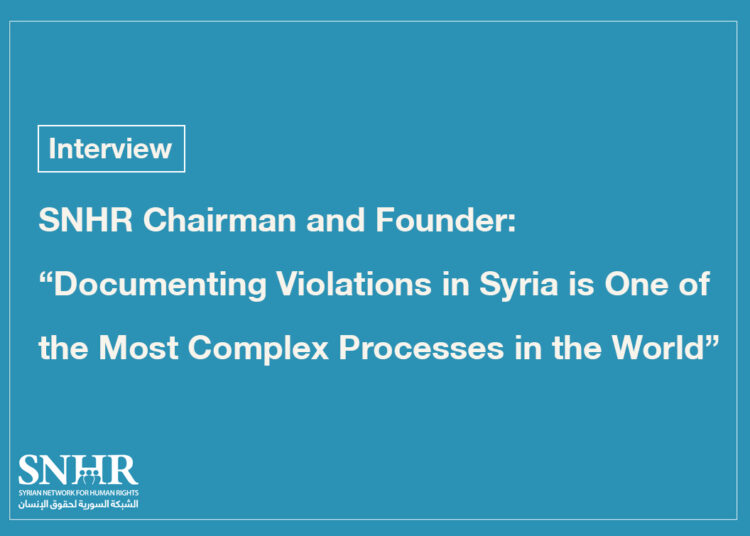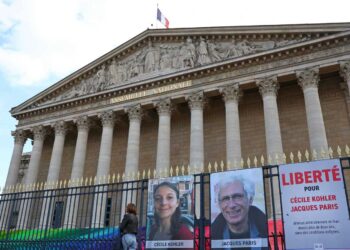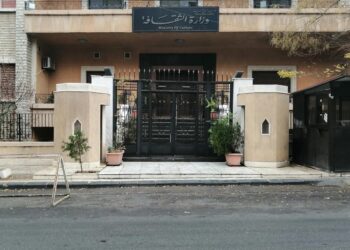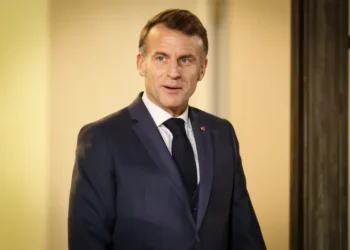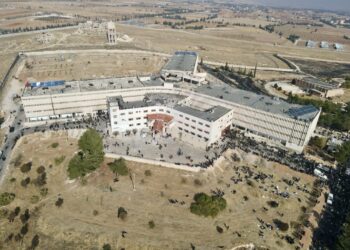SNHR chairman said that the Syrian regime and its allies have been responsible for more war crimes in Syria than any other party, but he stressed that other parties have been involved in such inhumane acts. He added that SNHR possesses a documentation archive that international courts can use subsequently to hold criminals, from the different parties to the conflict, accountable. While the Syrian regime’s violations were widespread and systematic, SNHR chairman noted, the opposition’s violations haven’t formed a pattern or were repeated.
Who Victimized Syrians?
When asked about who perpetrated the largest war crimes and crimes against humanity in Syria, Fadel Abdul Ghany, chairman of SNHR, said, in an interview with Geroun, “When the popular uprising started in March 2011, the Syrian regime was the sole party committing human rights violations in Syria. This includes the official Syrian army, security forces, local militias, and foreign militias, which are primarily of Shiite beliefs. To this day, the Syrian regime is still the primary perpetrator of all kinds of crimes and violations to a percentage of 80%, when combined with its allies, Russian forces, who entered the Syrian conflict in September 2015.”
“Democratic Union Party, who is a branch of the Kurdistan Workers’ Party, and their allying forces come second,” Fadel Abdul Ghany noted. We didn’t distinguish between these forces and government forces early in the popular uprising. That is, until the start of 2012. In early-2014, the party founded what came to be called ‘Self-Management’. The core component of those forces is the Democratic Union Party – People’s Protection Units and Asayesh forces. Those forces’ violations make up 2% of all violations.”
The third party in terms of violations, according to Fadel Abdul Ghany, are ‘Syrian opposition forces’ which comprises all armed opposition factions, including the Free Syrian Army non-extremist Islamic groups. These groups started operating solely in August 2011, before expanding gradually. These groups are responsible for 0.7% of all violations.
“There is of course a fourth party – extremist Islamic groups who include the group formerly known as al Nussra Front, al Qaeda’s branch in Syria which was founded in January 2012, ISIS which was founded in April 2013, and Jund al Aqsa in addition to anyone who pledge allegiance to them. Those groups are responsible for 0.9% of all violations.” He added.
Fadel Abdul Ghany added a fourth party, “the US-led international coalition forces, which is coalition founded by a number of states and led by the US for the purpose of fighting ISIS. The coalition carried out its first airstrike in September 2014. They are responsible for 0.2% of all violations.”
Documentation standards and credibility
We asked whether SNHR documents the Syrian regime’s violations in accordance with the rules and standards adopted and approved by international courts, and Fadel Abdul Ghany answered, “We are a human rights group that makes report based on a methodology and a set of standards that comply largely with the methodology of the international commissions of inquiry. There are large number of incidents where we were able to document the crimes semi-completely. On the other hand, there have been incidents where we were able to collect less evidences and information, and there are some incidents that we couldn’t document in reports on account of not having sufficient evidences from our standpoint and based on our methodology.”
could those documentations and reports be used subsequently on an international level? “We try to maintain accuracy in our reports and the evidences we collect to a large extent, where they are acceptable at international, and even local, courts. This is one of our work’s goals, hold the criminal accountable based on specific evidences and incidents. Consequently, it is safe to say that SNHR possesses an extensive archive that courts can use and largely benefit from, which will facilitate their work and accelerate the process of holding the criminals accountable and issuing judgments.”
This interview was published by Geroun Media Network
View full Interview
